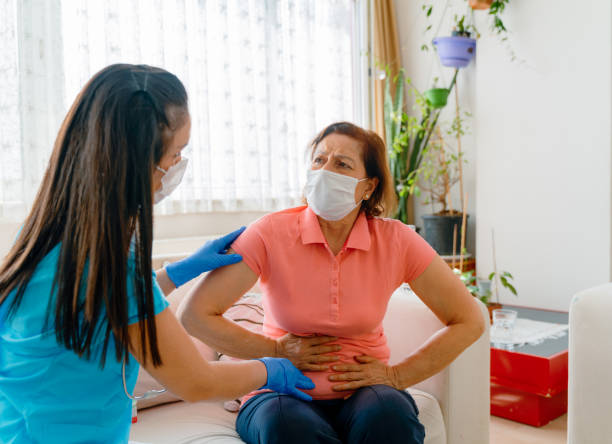Stomach bugs, also known as gastroenteritis, are a common condition that can cause discomfort and inconvenience. It is an inflammation of the stomach and intestines and can be caused by a number of factors including viruses, bacteria, and parasites. The symptoms of a stomach bug can range from mild to severe and can last anywhere from a few hours to several days.
Symptoms of Stomach Bug
The most common symptoms of a stomach bug include:
Nausea: This is one of the earliest signs of a stomach bug and can range from mild discomfort to severe vomiting.
Diarrhea: This is a frequent and watery discharge from the bowels.
Abdominal pain: This can range from mild discomfort to severe cramping and can be accompanied by bloating and gas.
Loss of appetite: A person with a stomach bug may not feel like eating, and when they do eat, they may not be able to keep the food down.
Fever: A fever can accompany a stomach bug, especially if it is caused by a viral or bacterial infection.
Fatigue: A person with a stomach bug may feel fatigued and weak, and may have trouble sleeping.
Dehydration: This is a common complication of a stomach bug and can occur as a result of frequent diarrhea and vomiting.
Treatment for Stomach Bug
There are many different treatment options for a stomach bug, depending on the cause and severity of the condition. The following are some common treatments:
Rest: Rest is one of the most important things a person with a stomach bug can do. Taking it easy will allow the body to focus its energy on healing.
Hydration: Dehydration is a common complication of a stomach bug, so it is important to drink plenty of fluids, especially water and clear broths. Electrolyte solutions can also be helpful in replenishing lost fluids and minerals.
Over-the-counter medications: Anti-diarrheal medications such as loperamide can help reduce the frequency and severity of diarrhea. Pain relievers, such as ibuprofen, can help relieve abdominal pain and fever.
Probiotics: Probiotics can help replenish the good bacteria in the gut and improve digestion.
Diet: A bland diet that is low in fiber and fat can help soothe an upset stomach and reduce symptoms. Gradually, a person can start adding foods back into their diet, as long as they do not cause any further discomfort.
In severe cases, a doctor may prescribe antibiotics if the stomach bug is caused by a bacterial infection. If a person experiences severe symptoms, such as severe dehydration, high fever, or severe abdominal pain, it is important to seek medical attention.
Conclusion
A stomach bug can cause a range of symptoms and can be caused by many different factors. The best treatment for a stomach bug depends on the cause and severity of the condition, but it typically involves rest, hydration, and over-the-counter medications. In severe cases, antibiotics may be necessary, and a doctor should be consulted. With proper treatment, most people recover from a stomach bug within a few days, but it is important to stay hydrated and avoid spreading the infection to others.

 Home
Home Health
Health Diet & Nutrition
Diet & Nutrition Living Well
Living Well More
More












